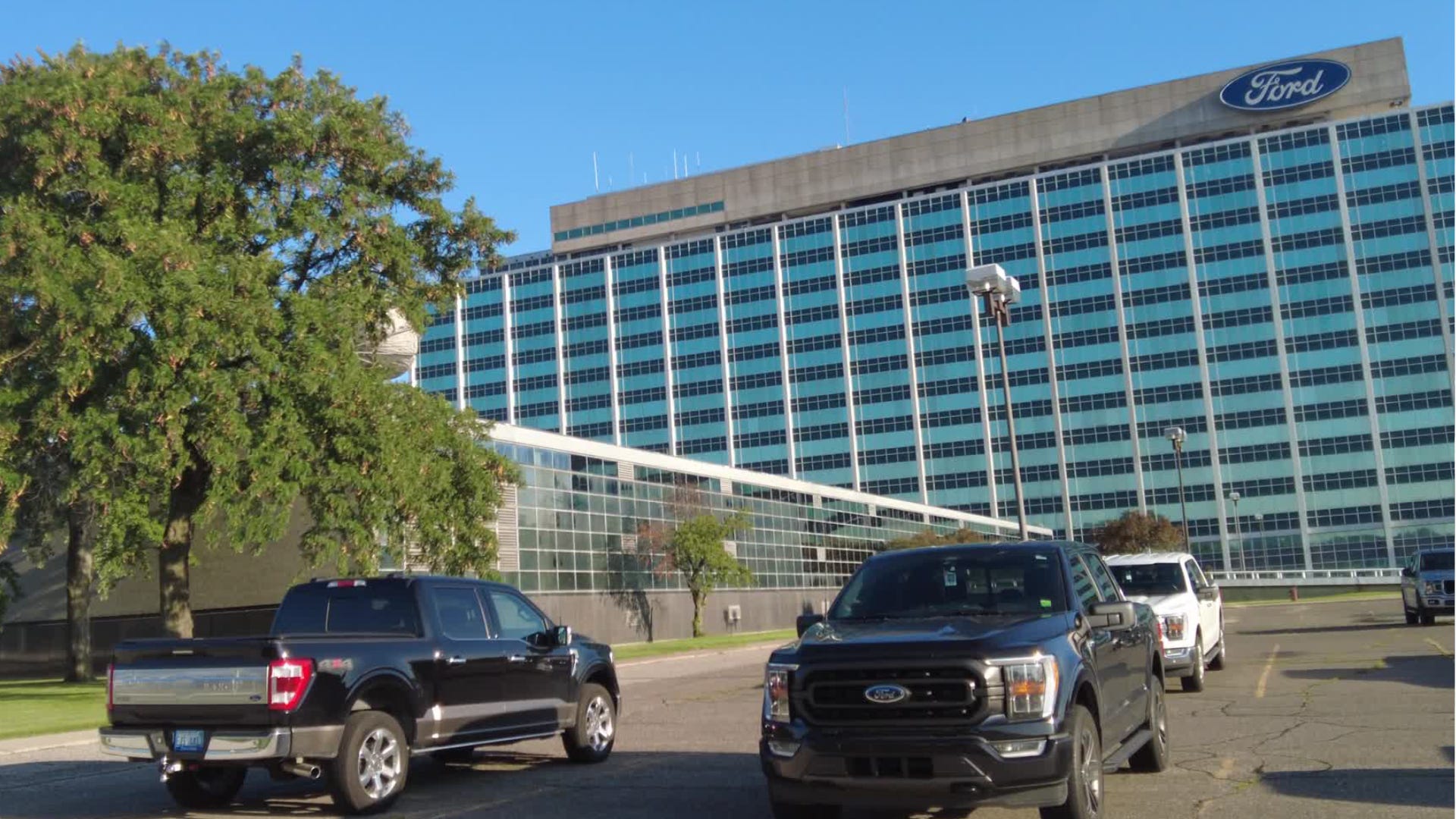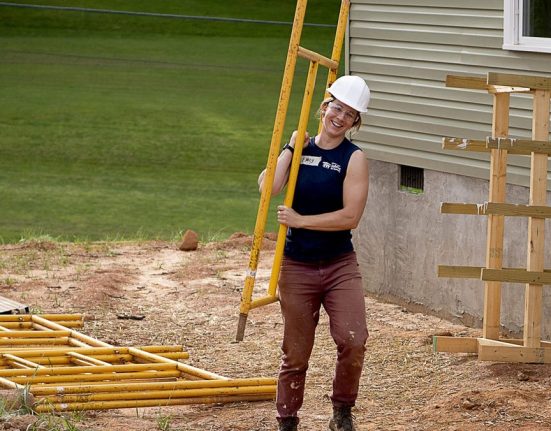
Ford Motor Company: Understanding the automaker’s history, legacy
Explore the rich history of Ford Motor Company, from its groundbreaking assembly line innovations to iconic cars like the Model T, Mustang, and F-150.
- Ford Executive Chair Bill Ford writes a statement to investors assuring them the company is well-positioned to navigate the challenges this year.
- Bill Ford said the automaker’s top priorities are to improve quality and cost-efficiency.
- Bill Ford has been working with the Trump administration so as to mitigate the impact of tariffs on Ford.
Ford Motor Co. Executive Chair Bill Ford told investors Friday in a federal regulatory filing that the automaker is “well-positioned” to get through the economic and political uncertainty of the current U.S. automotive environment, and its top “operating priorities” this year are to continue to improve quality and cost-efficiency.
Ford’s statement is part of a filing the automaker made with the U.S. Securities and Exchange Commission. In an introduction to shareholders, Ford wrote in the filing a reassurance that the 121-year-old Dearborn-based automaker will survive any volatility.
Ford does not directly name the tariffs, but he alluded to turbulence around the uncertainty the policy has created, along with the challenge of “new competitors,” a likely reference to the Chinese automakers and their growing global dominance in electric vehicle sales.
“As we have many times in our history, we are being tested by forces reshaping our industry,” Ford wrote. “Technological leaps, geopolitical uncertainties, compliance pressure and new competitors are all disrupting the status quo. And yet, Ford is well-positioned to navigate these challenges and emerge as a winner.”
The comment, which was included in a preliminary government filing by Ford earlier this month, appeared again in the filing Friday, just two days after President Donald Trump imposed 25% tariffs on all imported vehicles and most auto parts starting April 3. Trump says the move will force auto companies to increase U.S. production and create jobs stateside.
But many auto analysts view the move as dire for the industry, saying it disrupts a complex supply chain where many parts often cross borders several times — even for cars assembled in the United States. Also, it takes billions of dollars and at least three years to build new factories to relocate parts production.
In the interim, tariffs will raise costs for all automakers and cause production disruptions and lead to industry layoffs, experts said. Analyst Dan Ives of Wedbush Securities estimated the tariffs will increase costs across the auto industry by $100 billion to $125 billion, causing new car prices to rise by $5,000 to $10,000.
Why Ford could struggle
As the Detroit Free Press reported, Bill Ford has spent much of March either on the phone with the Trump administration or in Washington, D.C., meeting with the president or his administration. In fact, Wednesday, just hours before Trump signed the executive order, the Free Press learned that General Motors Chair and CEO Mary Barra and Bill Ford both had made 11th-hour attempts to discuss tariffs with the administration to mitigate the effect on their companies.
Their efforts were to no avail. Trump signed an executive order that evening. The news has rocked the auto industry, with many analysts saying the tariff is unsustainable because nearly half the vehicles sold in the United States are imported, even those sold by the Detroit automakers. GM imports 46% of its car sales, according to a Reuters report citing research firm GlobalData. At Ford, it has said 21% of the vehicles it sells in the United States are imported.
But even for those vehicles made in the United States, the automakers get parts from other countries, mostly Canada and Mexico, that go into those vehicles. They also sell vehicles made here in other countries, so if other countries enact retaliatory tariffs, demand for Ford vehicles globally could decline, hurting the company’s sales.
For example, the Ford F-Series Super Duty pickup, a big seller for Ford, is assembled in Louisville, Kentucky, but all the gasoline V8 engines come from Windsor, Ontario, and the diesel V8s in it are made in Mexico, with other assorted parts also imported, including the aluminum for the bodies, said Sam Abuelsamid, vice president of Market Research at Telemetry Insights.
Ford spokesperson Robyn Jackson provided the Detroit Free Press on Friday with an updated company statement regarding tariffs that said, “As America’s largest auto producer, we are committed to working with the Trump Administration and having a candid dialogue with all policymakers to promote a healthy and growing U.S. auto industry.”
GM and Stellantis have referred the Free Press to a statement by the American Automotive Policy Council, the group that represents the automakers in Washington. The group said the U.S.-based automakers are committed to Trump’s vision of increasing automotive production and jobs in the U.S. They will continue to work with the administration, emphasizing the importance of implementing tariffs in a way that avoids raising prices for consumers and preserves the competitiveness of the carmakers.
Why Ford says the company can win
In Friday’s filing, Bill Ford told shareholders the company can survive the challenging political climate and emerging technologies and competition due to its structure.
“We have developed three distinct automotive businesses, Ford Blue, Ford Model e, and Ford Pro, to grow and serve customers in unique ways,” Ford wrote “And we offer the greatest choice of powertrains — gas, hybrid, and electric — which positions us well no matter how the market develops in the coming years.”
Ford Blue is Ford’s division that focuses on gasoline vehicles. Ford Model e is the division that develops EVs and hybrids and Ford Pro is the company’s commercial vehicle arm.
Ford is indeed counting on a variety of powertrains to spur sales. For example, its midsize pickup Ranger is a global top-seller but still trails the Toyota Tacoma, which is sold as the Toyota Hilux in markets outside the United States. But Ford will introduce a plug-in hybrid Ranger in Australia, Europe and New Zealand later this year. It hopes that, along with other new variants, will allow it to catch up or even top Toyota and take over the No. 1 spot as bestselling midsize pickup in the world.
In Ford’s lineup, Ranger is the third-best seller. The F-Series is No. 1, followed by the Transit series commercial vans.
This year’s priorities
Bill Ford told shareholders that the company has made “meaningful progress” as it transforms to offer new products, more choices of propulsion and services to customers.
“We achieved our highest revenue year in Ford’s history and our fourth consecutive year of top-line growth,” Ford wrote. “We also delivered about $500 million in net cost reductions in the second half of 2024, which shows progress on our objective to close our cost gap to key competitors. Globally, we are building a more resilient organization and have moved from significant losses to solidly profitable outside North America.”
In February, Ford reported for the full year that revenue rose 5% to $185 billion. Ford’s yearly results were largely due to strong sales of its F-Series pickups and continued gains in its commercial vehicle business. But Ford Model e reported a full-year loss of $5.1 billion before interest and taxes as the company continues to invest in future products. Ford also has seen high costs related to warranty work, but as Bill Ford noted, the company was able to bring those costs down by $500 million in the second half of 2024.
Bill Ford said the progress is the result of “years of diligent work” to restructure operations in China, Europe and South America.
“We … remain committed to reaching industry-leading quality and cost efficiency, our top operating priorities for this year,” Ford wrote. “We will continue to invest in our future and build even more momentum for our business by offering customers value at the intersection of distinctive vehicles for work, fun and adventure, software-defined experiences and services that save time.”
Jamie L. LaReau is the senior autos writer who covers Ford Motor Co. for the Detroit Free Press. Contact Jamie at jlareau@freepress.com. Follow her on Twitter @jlareauan. To sign up for our autos newsletter. Become a subscriber.







